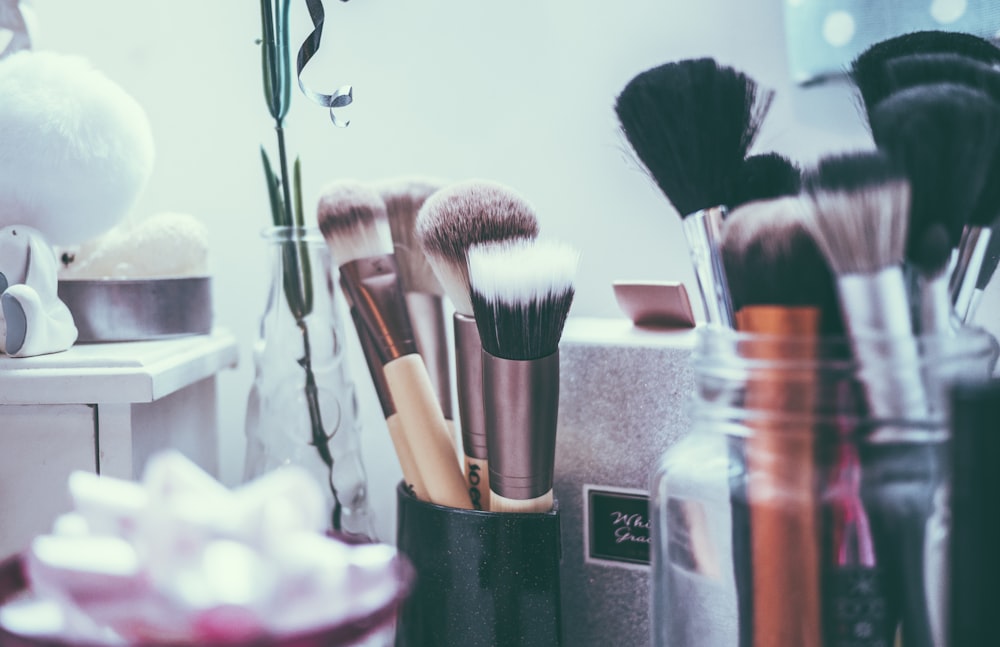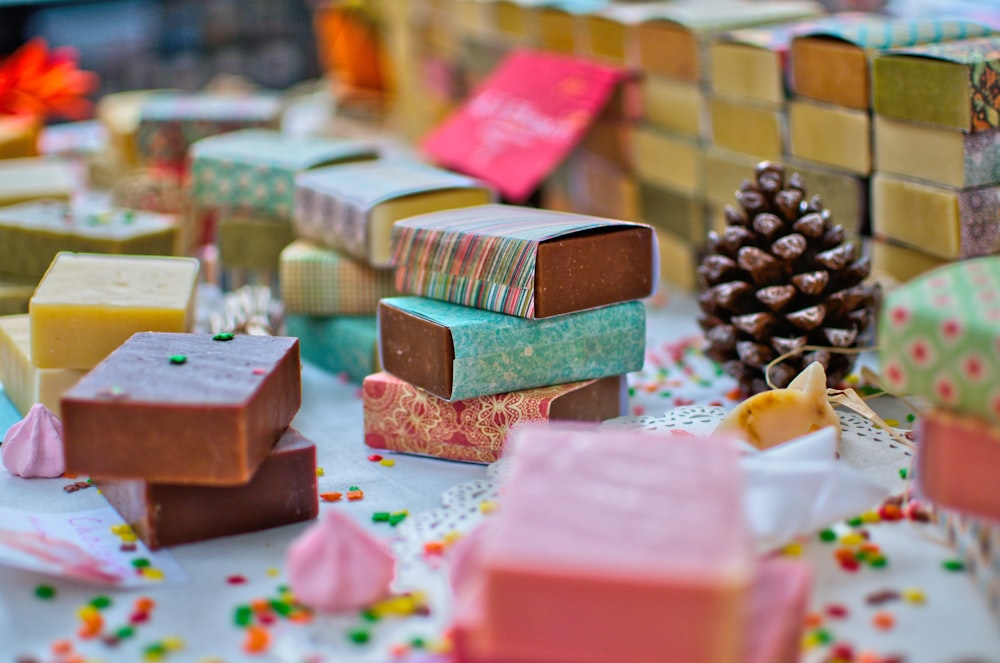 The zero waste movement encompasses minimising the amount of waste we produce in general. Living a waste-free lifestyle is theoretically possible. In practice, it is easier said than done.
The zero waste movement encompasses minimising the amount of waste we produce in general. Living a waste-free lifestyle is theoretically possible. In practice, it is easier said than done.A zero waste lifestyle has picked up the pace in the last few years. More and more people are coming to realise the effect that their contribution to waste has on the environment. The concept is based on 5 main principles, also referred to as the 5R's:
- Refuse: This principle entails the conscious refusal of waste such as unnecessary packaging. In a broader spectrum, the principle is aimed towards reducing what we consume in general. The less we consume (or refuse), the less is produced that needs to be disposed of at a later stage.
- Reduce: Reducing what we consume and living a more minimalistic lifestyle is what one should be looking to aim at. How many pieces of clothing do we own that we have not worn in years, or ever? Resources were used for the production that went into the countless, unnecessary items that we own. Reducing what we own or do not require can easily be sold or donated to those that may find use in it.
- Reuse: In the last few years, the production of products that can only be used once-off has reached a peak. Such items are only beneficial for one party, and that is the producers, as these items require the consumer to repurchase the item when needed. More and more throwaway products are being produced than items being repaired.
- Recycle: Products and items that are left over after having exercised the first three principles, should definitely, be taken to a recycling branch. This also helps to save resources.
- Rot (Composting): This entails the composting any produce that is not being consumed to use as high-quality manure.
Is natural cosmetics better for the environment?
The 5R's can also be used when it comes to cosmetics. The cosmetics' market produces mountains of plastic waste on an annual basis, but also the individual ingredients used plays an important role. Natural cosmetics do not contain any ingredients that may have adverse effects on the environment such as microplastics.
Microplastics
Microplastics are small plastic particles that are found in countless conventional cosmetic products such as scrubs and toothpaste, whereby many of these particles contain plasticisers and phthalates which can be hormonally active or even toxic. These tiny particles are set free in the environment via our drainage systems. Furthermore, environmental toxins accumulate on the surface of microplastics.
Today, the number of microplastic has increased to such a degree that they are now apparent in our food chain and, in some cases, our drinking water. This can only be put to an end when we refuse using products that contain them.
Plastic packaging - Alternatives?
Many natural cosmetic brands have started to avoid or use alternative, biodegradable packaging. There are also several natural cosmetics products on the market today that do not come wrapped up in packaging at all. Luckily, this trend is becoming increasingly more popular. At Ecco Verde, we offer a range of raw materials that can be used for homemade cosmetics and help minimise plastic waste. This concept has several benefits:
- you save on unnecessary packaging
- you create the cosmetics that suit your needs
- it's fun!
It's safe to say we've never been more aware of the impact our lifestyles are having on the environment than we are now. Consequently, the idea of living a zero-waste lifestyle is something we're hearing bandied about the internet more and more. It's a radical concept that in it's most potent iteration will see you padlock your bin shut and vow never to throw anything away again.
It's also great for the planet. Why wouldn't you want to be apart of it?" Her enthusiasm is palpable and got us thinking: Considering the beauty industry plays its fair part in filling the nation's landfills, how can we be a little more responsible with our beauty regimens?
Even if a fully zero-waste lifestyle isn’t for you, keep scrolling for five simple swaps you can make to help reduce the environmental impact of your beauty regimen. Trust us—you won’t even notice anything different from your regular routine.
The easiest place to start when it comes to reducing your environmental impact is to buy from brands that use recycled and recyclable packaging. These aren't always easy to find, but as a rule of thumb, avoid plastics. Every piece of plastic ever created still exists. Plastic doesn't biodegrade; it photodegrades, which means it gets smaller and smaller and smaller. Ninety-four per cent of all water samples in the U.S., both bottled and tap, contain micro-plastic. We're drinking plastic.
 That being said, glass jars are a good alternative, as they can either be recycled or repurposed into something else. And you'd be surprised—many products now have zero-waste packaging such as Earth-friendly glass packaging or 100% recycled glass. The movement toward a zero-waste lifestyle is really a no-brainer. It just makes sense and puts the power back into the hands of the consumer. We can make such an impact on our daily choices and purchases and living a zero waste life is easy, fun, and saves tons of money!
That being said, glass jars are a good alternative, as they can either be recycled or repurposed into something else. And you'd be surprised—many products now have zero-waste packaging such as Earth-friendly glass packaging or 100% recycled glass. The movement toward a zero-waste lifestyle is really a no-brainer. It just makes sense and puts the power back into the hands of the consumer. We can make such an impact on our daily choices and purchases and living a zero waste life is easy, fun, and saves tons of money!Switch to Reusable Cotton Pads
If you're a cotton pad user, it's likely you get through a good wedge of them every single day, taking your makeup off, applying toner and the like. They may be light, but they place a pretty massive weight on the country's landfill sites. Instead, arm yourself with a pack of reusable cotton rounds that you can simply throw in the wash once you've used it. And because they're a bit sturdier than their throwaway equivalents, they are much better equipped to peel every last scrap of makeup from the face—even mascara.
Then there are those pesky face wipes which not only have questionable consequences for the complexion, but they can also take hundreds of years break down in landfill. Made from the Asian konjac plant, konjac sponges can be composted once their month-long lifespan comes to an end, and they're much more effective at trapping dirt and sebum from the skin's surface and lifting it away, so your face will reap the benefits too. Aptly named The Konjac Sponge Company, its range of sponges with added skincare benefits are particularly robust.
Going Zero Waste
 It's pretty straightforward: Ditching the plastic bottles of traditional shampoo in favour of a packaging-free version has got to be advantageous for the environment. Thankfully, you needn't scrimp on hair-boosting formulas either. Many natural skincare companies now sell solid shampoo bars which come infused with ingredients that offer any and every hair benefit you could want—from root-lifting to shine-inducing, curl-defining to moisture-giving.
It's pretty straightforward: Ditching the plastic bottles of traditional shampoo in favour of a packaging-free version has got to be advantageous for the environment. Thankfully, you needn't scrimp on hair-boosting formulas either. Many natural skincare companies now sell solid shampoo bars which come infused with ingredients that offer any and every hair benefit you could want—from root-lifting to shine-inducing, curl-defining to moisture-giving.The concept of zero waste goes way beyond skincare packaging – it’s part of a wider philosophy on how a skincare brand manages the environmental footprint of its business. A zero waste beauty brand should run their entire operation to zero waste principles – that means their formulation lab, their manufacturing processes, their administration, their shipping warehouses, everything. If you want to buy from a truly zero waste beauty brand, look at the credentials on their website: do they talk about their carbon footprint, their environmental impact and how they manage their company’s waste management processes? We can use wind or solar energy, carbon offsets for carbon dioxide emissions, go digital with record-keeping, recycle, reuse, and reduce waste in virtually every area of the business. It is difficult to achieve but zero waste can be possible for the natural skincare and cosmetics industry.